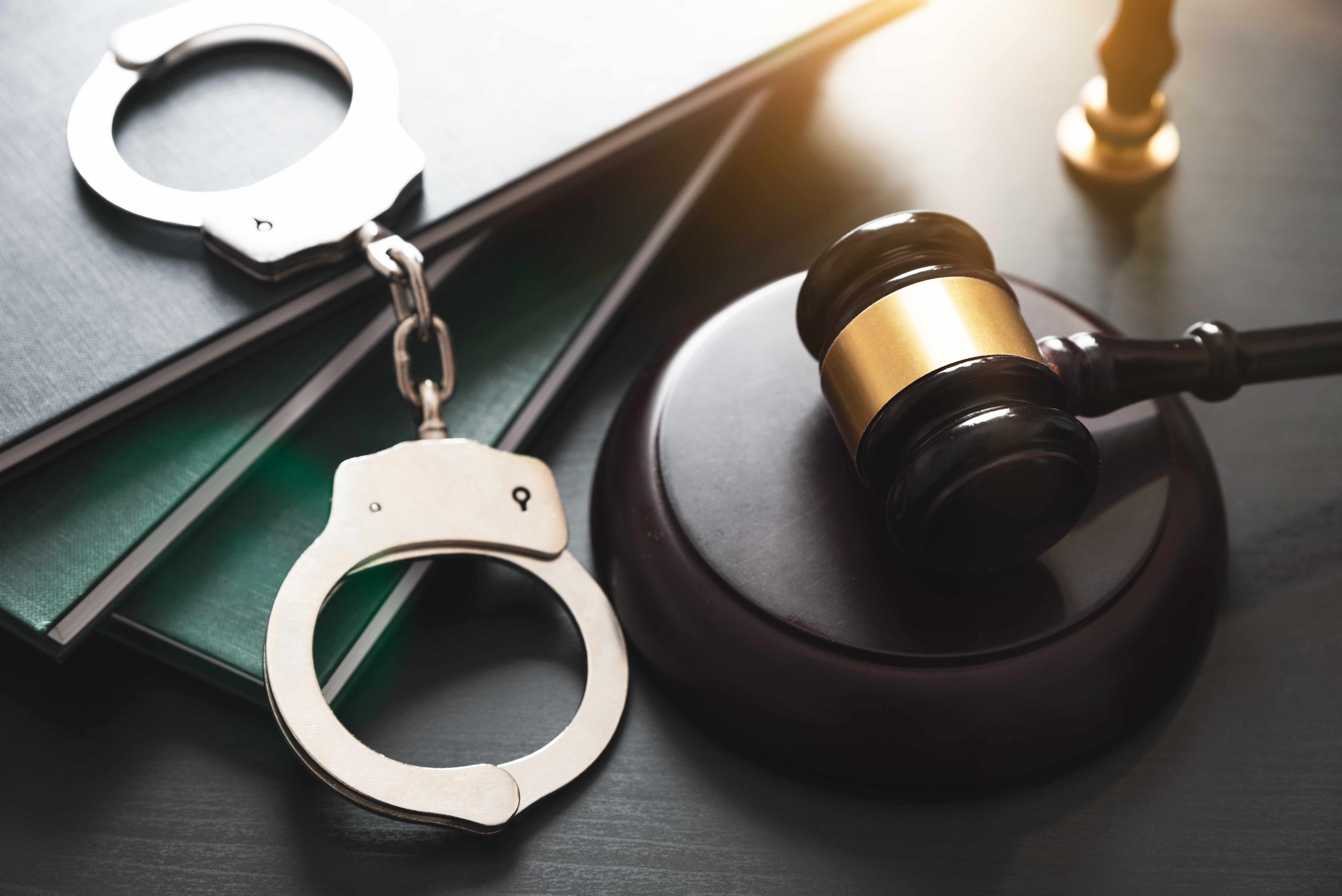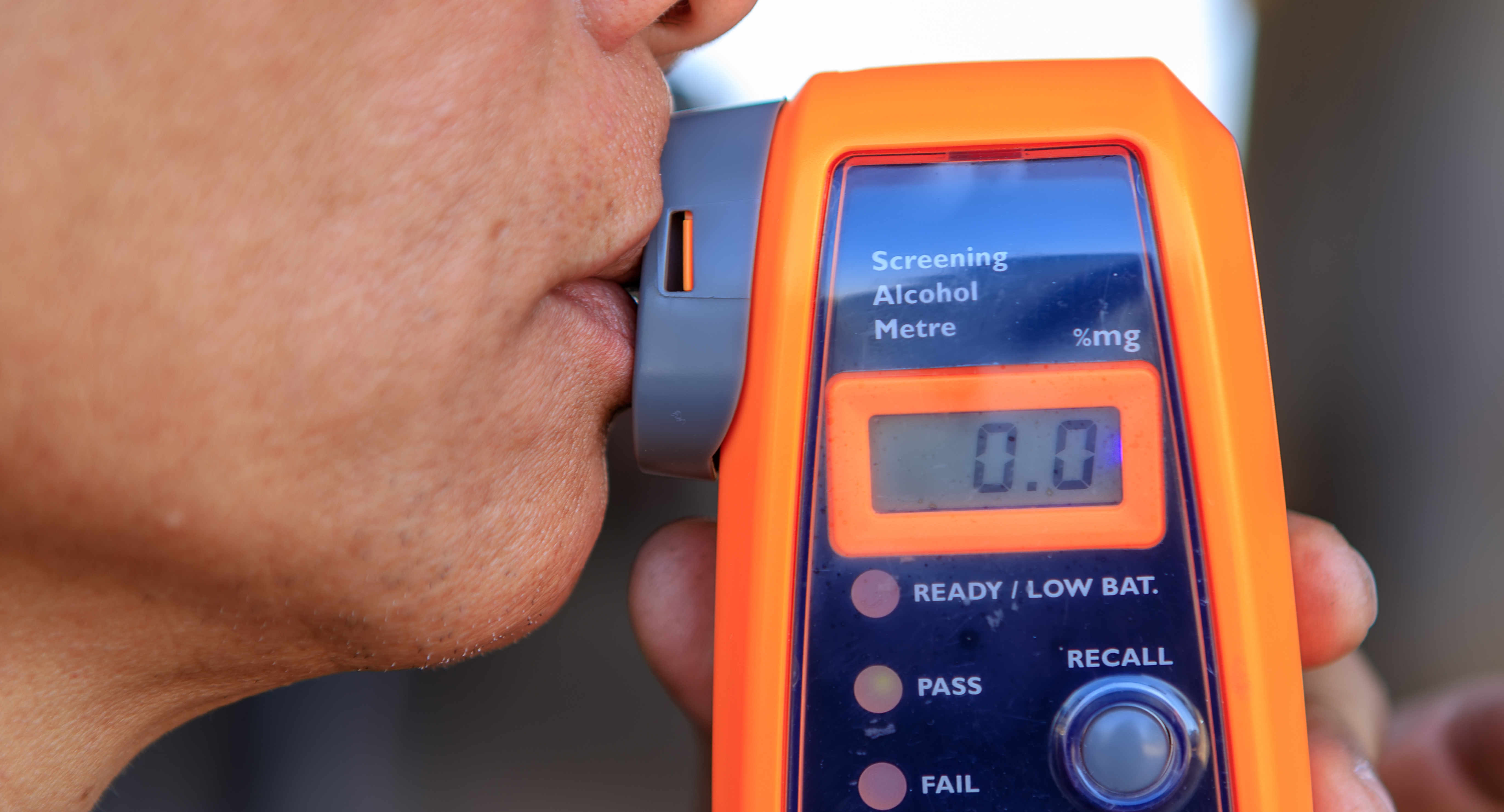In some situations, a Texas temporary driver’s license isn’t a big deal. For example, you normally receive a temporary driver’s license during in-person renewal of your driver’s license. Having a Texas temporary driver’s license can be a big deal, though. That’s especially true if the temporary license resulted from a DWI arrest.
What Is a Temporary Driver’s License?
A Texas temporary driver’s license — a piece of paper known as a temporary driving permit — is frequently issued after a DWI arrest. It enables you to drive for 40 days after the state Department of Public Safety notifies you about a license suspension. The permit substitutes for the permanent driver’s license that an arresting officer seized when you were arrested.
After a DWI arrest, the Texas Department of Public Safety suspends your driver’s license if you:
- Underwent a blood or breath test that registered a blood alcohol concentration (BAC) of 0.08% or more while driving a regular vehicle.
- Underwent a blood or breath test that registered a BAC of 0.04% or more while driving a commercial vehicle.
Among the other circumstances that may prompt the issuance of a temporary driver’s license are:
- Refusal or failure to take an alcohol or drug test
- Ongoing traffic violations
- “Incapacity” to drive a vehicle
- Failure to pay fines
- Failure to show up for a court appearance
Texas Driver’s License Classes: Understanding the Different Types
Texas issues four types of driver’s licenses: Class A, Class B, Class C and Class M.
Class A
A Class A driver’s license authorizes a motorist to drive:
- A vehicle with a gross weight of at least 13 tons
- A combination of vehicles with a gross combined weight of 13 tons or more
- Any Class B or C vehicle
Class B
A Class B driver’s license authorizes a motorist to drive:
- A vehicle with a gross weight of at least 13 tons
- A vehicle with a gross weight of 13 tons or more that is towing a vehicle with a gross weight that doesn’t exceed 5 tons or a farm trailer with a gross weight that doesn’t exceed 10 tons
- A bus with a seating capacity of 24 passengers or more including the driver
- Any Class C vehicle
A Class B license can be for non-commercial vehicles or commercial vehicles.
Class C
A Class C driver’s license authorizes a motorist to drive:
- A vehicle or combination of vehicles that aren’t included in Class A or B
- A vehicle with a gross weight of less than 13 tons towing a farm trailer with a gross weight that doesn’t exceed 5 tons
- A vehicle designed to transport fewer than two dozen passengers, including the driver. Someone driving a vehicle approved for transporting 16 to 23 passengers, including the driver, typically must have a Class C commercial driver’s license
- A three-wheeled autocycle
Class M
A Class M driver’s license authorizes a motorist to drive a motorcycle.
Commercial Driver’s Licenses
Class A, Class B, and Class C driver’s licenses enable someone to drive certain commercial vehicles. For example, a Class C license enables someone to drive a vehicle that transports hazardous materials and must display placards regarding hazardous materials.
Class M driver’s licenses aren’t issued.
Offenses That May Result in a Temporary Driver’s License
Offenses that may result in a temporary driver’s license being issued include:
- Being arrested for or convicted of DWI.
- Refusing or failing to take an alcohol or drug test.
- Accumulating numerous traffic violations. Texas suspends a driver’s license if a motorist racks up at least four moving violations in a 12-month period or more than seven moving violations within a 24-month period.
- Driving without car insurance. Texas requires drivers to carry a minimum amount of bodily injury liability and property damage liability insurance.
- Driving recklessly.
- Failing to pay traffic tickets.
- Failing to pay traffic fines.
- Missing a court date.
A temporary driver’s license also is issued when you renew or replace your permanent license or submit an address change. The receipt from this transaction serves as your temporary driver’s license. You also can receive the temporary license by email, but it must be printed for it to be valid.
A temporary driver’s license is valid for 60 days from the date of your driver’s license transaction.
Restrictions on Driving with a Temporary Driver’s License in Texas
In the case of a DWI, a temporary driver’s license lets you drive for 40 days after your arrest. However, if you or your attorney asks within 15 days of the arrest for an administrative license revocation (ALR) hearing, the temporary driver’s license doesn’t expire until the ALR hearing.
Driving with a temporary driver’s license doesn’t limit regular behind-the-wheel activity unless a judge orders you to install an ignition interlock device or imposes other restrictions.
Documentation Required for Obtaining a Temporary Driver’s License in Texas
If you’ve received a temporary driver’s license following a DWI arrest, you don’t need any documentation to obtain a temporary driver’s license. Instead, the “notice of suspension” that the arresting officer hands you serves as your temporary license. Also, the notice explains the rights related to your license suspension, including your right to request an ALR hearing about the suspension.
Under normal circumstances, documentation requirements vary depending on whether you’re renewing, replacing, or updating your driver’s license online, by phone, by mail, or at a local driver’s license office.
Here’s what you’ll need to renew your Texas driver’s license and, therefore, get a temporary 60-day driver’s license when you’re completing the process online:
- Current Texas driver’s license number
- The last four digits of Social Security number
- Valid credit card to pay the renewal fee, which ranges from $16 to $105.
The process for renewing a driver’s license in person (and, therefore, getting a 60-day temporary license) is a bit more involved. In this scenario, you must:
- Complete a renewal application. The application should be filled out before you arrive at the driver’s license office.
- Provide proof of U.S. citizenship, such as a passport.
- Provide proof of identity, such as your birth certificate, unexpired driver’s license or valid passport. At least two documents are required.
- Provide proof of your Social Security number.
For an in-person renewal, photos of documents aren’t accepted.
Keep in mind that you must make an appointment at a local driver’s license to renew your license instead of showing up without an appointment.
During your appointment, you’ll be asked to provide your signature and thumbprints, get your picture taken, take a vision exam and pay the application fee.
If you’re out of state, you can request a traditional Texas temporary driver’s license by:
- Sending an email request to [email protected].
- Including your full name, license number and date of birth.
- Providing the reason for the request (generally to obtain a duplicate license if you’re out of state or out of the country).
No fee is charged to obtain this type of temporary driver’s license. If your request is approved, the temporary license will be sent via an encrypted email that will include instructions about how to receive the encrypted item.
Cost of a Temporary Driver’s License in Texas
If you received a temporary driver’s license following a DWI arrest or another traffic arrest, you won’t need to pay for the license. The arresting officer will hand a suspension notification to you at the time of the arrest, and this notification will serve as your temporary license.
The state charges a $100 fee for reinstatement of your license after a DWI or traffic incident or a $125 fee if the suspension was challenged at an ALR hearing.
The state also charges fees for renewing a license under regular circumstances:
- Renewal of driver’s license (with or without changing address) — $33
- Renewal of driver’s license with motorcycle (with or without changing address) — $44
- Renewal of commercial driver’s license (with or without changing address) — $97
- Renewal of commercial driver’s license with motorcycle (with or without changing address) — $105
When Can Full Driving Privileges Be Restored After Getting a Texas Temporary License Due to DWI?
After the 40th day of receiving your temporary Texas license due to a DWI, your license will be suspended. Full driving privileges are restored after the suspension period ends. That period depends on the offense and the sentence.
Once the suspension ends, you can check your eligibility for reinstatement by visiting the Department of Safety’s online license eligibility system.
To begin the license reinstatement process through the eligibility system, you’ll need to provide:
- Your driver’s license number
- Your date of birth
- The last four digits of your Social Security number
- Payment of fees, such as court fees and the license reinstatement fee
Also, you must submit relevant or required suspension compliance documents, along with a financial responsibility insurance certificate (known as an SR-22) from your insurance company. These documents must be mailed or faxed to the Department of Public Safety.
If you’re challenging the suspension, it might take up to 60 days to schedule an ALR hearing.
During the hearing, an administrative law judge will consider evidence from both sides. If the judge rules in favor of the Department of Public Safety, the license suspension will go forward. But if the judge decides that the department failed to prove its case, the license won’t be suspended.
The judge’s decision can be appealed.
Impact of a Temporary Driver’s License on Insurance Premiums
Having a temporary driver’s license doesn’t actually affect your car insurance premiums. But the reason for getting the temporary license can impact your premiums.
In the case of a DWI incident that led to receiving a temporary license, for example, your premiums could easily skyrocket.
According to the Bankrate personal finance website, the average increase for a Texas motorist with a DWI on their record is 49%. However, some insurers reject drivers with a DWI on their record. Therefore, these drivers could be forced to find coverage from a different company from the one that currently issues their overage.
Texas Administrative License Revocation (ALR) Process
A defense attorney can employ a number of strategies to contest DWI charges and protect a defendant’s driving privileges:
- Pointing out that the officer had no probable cause to pull over the driver. If probable cause can’t be established — the motorist was supposedly weaving from lane to lane, for example — evidence against the defendant might be thrown out.
- Questioning the outcome of the sobriety test. A defense attorney might be able to prove, for instance, that the results of the sobriety test were faulty. A sobriety test might include performing a breathalyzer test or asking the driver to touch their nose or walk along a straight line.
- Emphasizing the lack of dashcam video. If an officer’s dashcam malfunctioned during the arrest, for example, it could be justification for dropping the case.
As for winning an ALR hearing regarding the suspension of the defendant’s driver’s license, a defense attorney might:
- Question the legality of the traffic stop.
- Challenge the reason for the arrest.
- Stress that the arresting officer didn’t follow proper procedures in administering a breath or blood test.
- Object to the results of the defendant’s breath or blood test.
- Note that the officer failed to read Miranda rights to the defendant.
Seeking Guidance on a Temporary Driver’s License in Texas
Experienced professionals like those at Michael & Associates, Attorneys at Law can offer guidance on what to do if you’ve received a temporary driver’s license due to a DWI arrest in Texas. They also can offer legal services to tackle other charges, such as drug possession, assault, domestic abuse, and burglary.
Given the seriousness of a DWI charge, it’s important to enlist help from a knowledgeable defense attorney who can represent you in hopes of lessening the charge, getting the charge dropped, reducing the sentence, or preserving your driving privileges.
FAQs About Texas Temporary Driver’s Licenses
How Long Is My Temporary Driver’s License Valid?
If a temporary Texas driver’s license was issued after a DWI arrest, the license is valid for 40 days after the notice of suspension is given.
Can I Operate a Vehicle Normally With a Temporary Driving Permit?
With a temporary driving permit, you can operate a vehicle normally until your license is suspended or until you go through an ALR hearing.
How Do I Get My DWI Dismissed in Texas?
Among the ways to get a DWI case dismissed in Texas are questioning the strength of the prosecutor’s evidence or pointing out that the defendant’s constitutional rights were violated during the arrest.
How Long Does a DWI Stay on My Record in Texas?
Unless a DWI is erased from your record (or is expunged, in legal lingo), a DWI stays on your Texas record indefinitely.
If I Have a Temporary Driver’s License and Get Pulled Over, What Should I Do?
If you get pulled over by a police officer, you should be cooperative and calm, and follow the officer’s instructions. During the stop, the officer will check your driving eligibility.
Just as you’d present a regular driver’s license to the officer when you’re pulled over, you should present your temporary permit if you have one. Remember that you should always carry your temporary permit when you’re driving.




